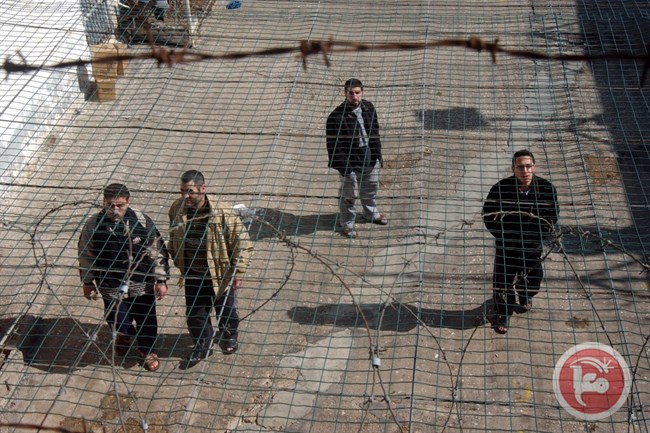Ramallah, 14 Dzulhijjah 1436/28 September 2015 (MINA) – The Palestinian Authority’s committee for prisoners’ affairs on Sunday said that Israeli authorities have thus far refused the committee’srequestsfor seven Palestinian hunger strikers to be transferred to hospitals for treatment.
In a statement, the committee accused Israel of “trying to kill” seven hunger striking prisoners who have been on strike for 40 days, alleging that the“Israeli government is wearing down the prisoners on purpose in order to force them to end their hunger strike by depriving them of medical treatment and sending them to prison wards where criminal prisoners are being held.”, Ma’an News Agency quoted by Mi’raj Islamic News Agency (MINA) as reporting.
The statement pointed out that the prisoners’ committee had submitted an emergency appeal to Israel’s High Court, asking the court to order the prisoners’ hospital transfers.
A spokesperson for the Israeli Prison Service told Ma’an over the phone on Sunday that the ISP could confirm the prisoners had not been transferred to hospitals, stating that the prisoners had “only been [hunger striking] for 30 days, and they are not required to be moved to a hospital until after 35 days.”
Also Read: UNRWA Urges Entry of Shelter Aid into Gaza
However, Ma’an first reported that at least five of the hunger strikers began their strike on Aug. 18, exactly 40 days before.
The prisoners’ committee said the striking prisoners are in dire need of medical treatment, reporting that the men have lost “all power and strength.”
The committee stressed that the seven men have been consuming only water, and have refused vitamins or any other supplements.
All seven hunger strikers are protesting their administrative detention, the policy under which they are being held without charge or trial, indefinitely. Administrative detention, an emergency law, dates back to the British Mandate era.
Also Read: Heavy Rains Flood Tents, Deepen Misery for Displaced Palestinians in Gaza
“Leaders of Israel and Israeli gang leaders were the first to bear administrative detention during the British Mandate era, and at that time they denounced it, accusing the British government of violating their basic rights,” the prisoners’ committee alleged in a statement. “Then the leaders of Israel were the first to apply the same rules on the Palestinians.”
“Those who claim to be victims have become war criminals and pioneers at violating the rights of the Palestinian people,” it added.
The seven prisoners on strike are identified as Nidal Abu Aker; held in the Ashkelon jail, Bilal al-Saifi, held in the Megiddo jail, Ghassan Zawahreh, held in the Eshel jail, Badr al-Ruzza, held in the Negev jail, Munir Abu Sharara, held in the Negev jail, Shadi Maali, held in the the Dekel jail, and Suleiman Iskafi, held in the Nafha jail.
Administrative detention allows for internment without trial or charge for six-month intervals that can be renewed indefinitely. The policy has been strongly criticized by the international community as well as both Israeli and Palestinian rights activists.
Also Read: Hind Rajab Foundation Sues Israeli Rapper-Soldier for War Crimes in Czech Court
Many Palestinians have gone on hunger strike to protest the practice.
Last month, Israel agreed to suspend the administrative detention of Palestinian prisoner Muhammad Allan following a 66-day hunger strike that raised fears Israeli authorities would force feed him, only to reinstate his detention earlier this month after Allan’s health recovered.
In July, another Palestinian prisoner, Khader Adnan, was released after a 56-day hunger strike to protest his administrative detention that brought him close to death.
Administrative detainees are allowed to appeal to the courts, however, the Prisoners’ Center for Studies, a prisoner rights group, found that 85 percent of all administrative detentions are renewed.
Also Read: Two Years of Israeli Genocide Fail to Halt Gaza Students’ Academic Achievements
According to prisoners’ rights group Addameer, some 350 Palestinians were being held in administrative detention as of August. (T/P010/R03)
Mi’raj Islamic News Agency (MINA)
Also Read: Israeli Forces Impose Curfew in Hebron, Close Ibrahimi Mosque for Settler Holiday































 Mina Indonesia
Mina Indonesia Mina Arabic
Mina Arabic